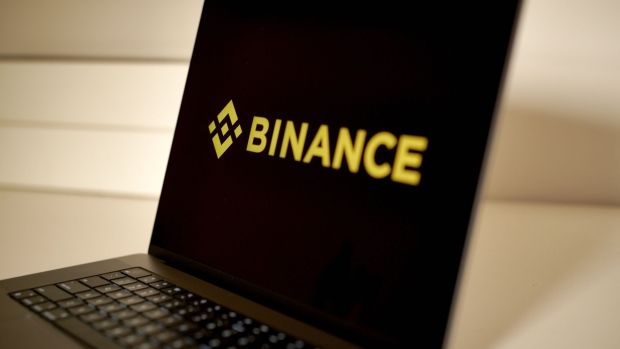Jan 22, 2024
Binance Case Again Testing Extent of SEC’s Power Over Crypto
, Bloomberg News

(Bloomberg) -- A US federal judge pressed the Securities and Exchange Commission on its stance on cryptocurrencies in the regulator’s high-profile case against Binance Holdings Ltd.
Amy Berman Jackson, a judge in the US District Court for the District of Columbia, asked the SEC to define a boundary for what it considered a security in regards to virtual tokens. The SEC under Chair Gary Gensler has argued that most crypto assets fall under the agency’s jurisdiction and are subject to its rules.
During a hearing Monday, Jackson said the SEC seems to be saying that all digital assets are securities. “How are the issuers supposed to know when they cross the line?” she asked.
The SEC claimed last June that Binance and former chief executive Changpeng Zhao mishandled customer funds, misled investors and regulators, and violated securities rules. It also accused the firm of offering unregistered securities to US investors. The firm and Zhao are fighting the SEC in court over its allegations.
Separately, Binance and Zhao pleaded guilty to Justice Department charges and settled with the Commodity Futures Trading Commission and the Treasury Department in November. The SEC wasn’t part of that agreement.
Read More: Binance Pleads Guilty, Loses CZ, Pays Fines to End Legal Woes
The case in Jackson’s courtroom is being closely watched by the industry because it could help determine the extent of the SEC’s jurisdiction over crypto. Another judge is weighing similar questions in the SEC’s case against Coinbase Global Inc., the biggest US digital-asset platform.
Much hinges on whether the tokens fit within the definition of an investment contract as laid out by a 1946 Supreme Court decision that defines securities as an “investment of money in a common enterprise with a reasonable expectation of profits to be derived from the efforts of others.”
As part of his argument, Jason Mendro, an attorney for Binance, said Monday that the company had no obligations to investors after selling certain tokens, which would need to be the case if the assets were to be considered securities. However, Jennifer Farer, an attorney for the SEC, said marketing efforts by Binance to promote its tokens suggested that investors expected a profit like they would when investing in securities.
Courts have been divided on the issue of whether digital tokens are securities and subject to SEC oversight. In July, a Manhattan federal judge ruled that exchange sales of Ripple’s XRP token didn’t fall under the SEC’s jurisdiction. But another judge that same month took what appeared to be the opposite view in the SEC’s case against Terraform Labs Pte.
Binance also argued that the SEC didn’t provide fair notice of its interpretation of the securities laws. Jackson said during the hearing that she didn’t find that argument persuasive.
The case is SEC v. Binance, 23-cv-01599, US District Court, District of Columbia (Washington, DC).
©2024 Bloomberg L.P.





